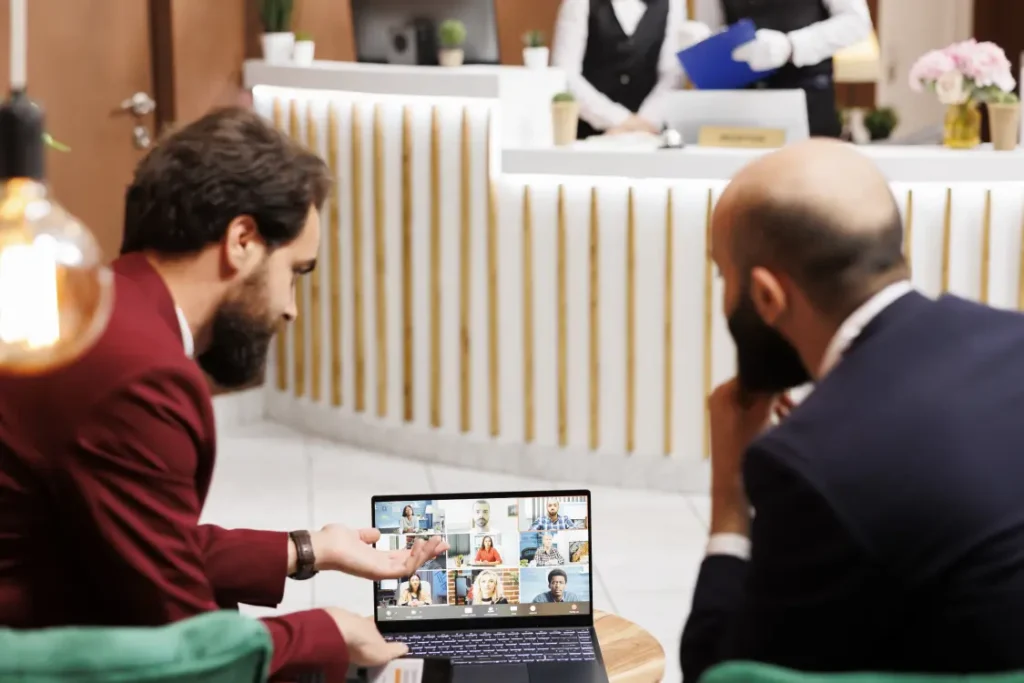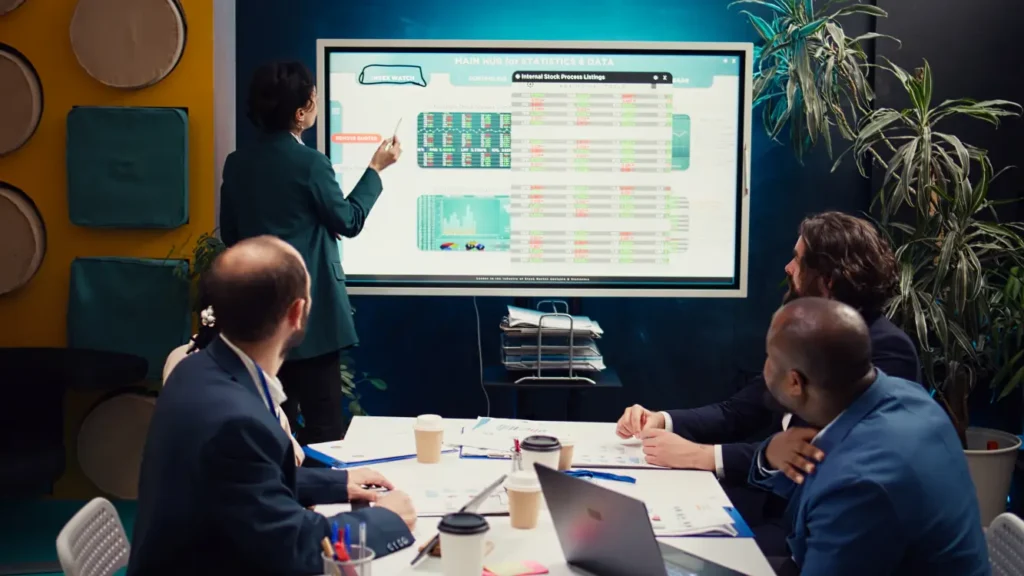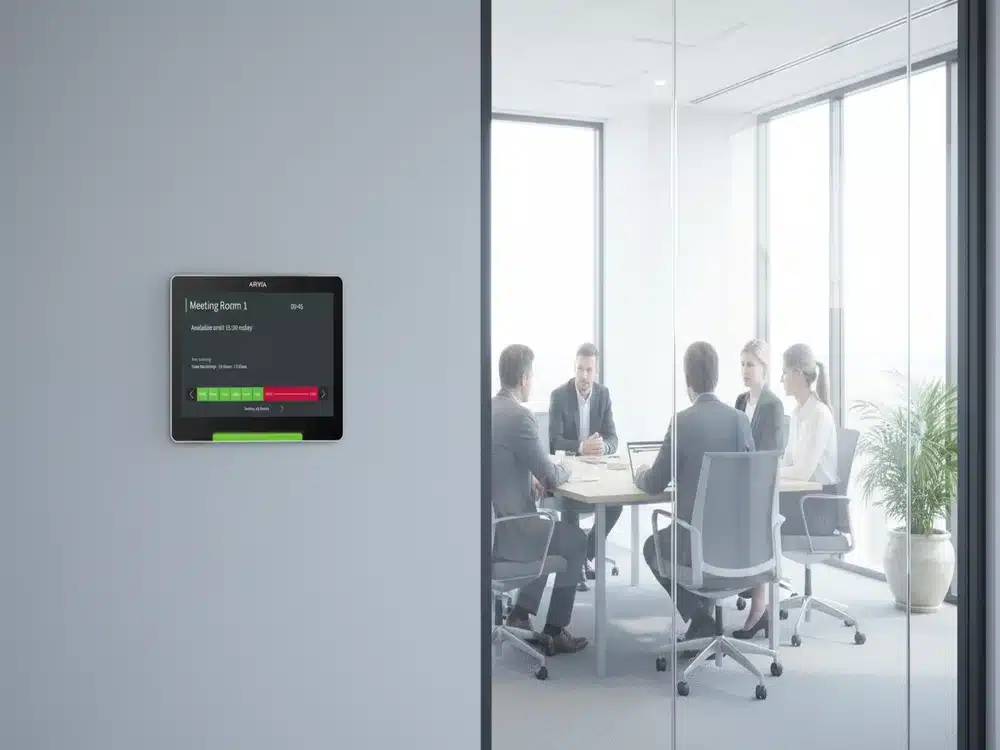Efficient office scheduling is essential for a productive work environment. Without a streamlined process, meeting rooms can become a source of frustration due to double bookings, last-minute cancellations, and inefficient space utilization. A
Meeting Room Booking System is the perfect solution to simplify office scheduling and ensure a hassle-free experience for employees.
In this article, we’ll explore how implementing a
Meeting Room Booking System can optimize office scheduling, improve efficiency, and make collaboration seamless.

Why a Meeting Room Booking System is Essential
A
Meeting Room Booking System eliminates the common challenges of managing office spaces manually. Here’s why every modern business should adopt a
Meeting Room Booking System:
- Prevents Double Bookings – Avoid scheduling conflicts and ensure meetings run smoothly.
- Improves Time Management – Employees can check room availability instantly without unnecessary back-and-forth communication.
- Enhances Productivity – A well-organized Meeting Room Booking System allows meetings to start on time and run efficiently.
- Provides Real-Time Analytics – Businesses can track room usage patterns and optimize office space accordingly.
- Allows Remote Booking – Employees can schedule meetings from anywhere using a cloud-based Meeting Room Booking System.
- Reduces No-Shows – Automated notifications and reminders keep meeting attendees informed.
- Optimizes Space Utilization – Businesses can ensure meeting rooms are used effectively, reducing wasted space.
Key Features of a Smart Meeting Room Booking System
A
Meeting Room Booking System should include the following features to simplify office scheduling:
- Real-Time Room Availability – Employees can instantly see which rooms are free.
- Automated Notifications – The system sends reminders to attendees to prevent missed meetings.
- Calendar Integration – Syncs with Google Calendar, Outlook, and other scheduling platforms.
- User-Friendly Interface – A simple, intuitive dashboard makes it easy to book, modify, or cancel reservations.
- Role-Based Access Control – Admins can manage permissions and restrict room access based on employee roles.
- Smart Technology Integration – Advanced Meeting Room Booking Systems connect with IoT-enabled devices for automated lighting, temperature control, and occupancy tracking.
- Check-In and Auto-Cancellation – If a room remains unoccupied for a set time, the system can automatically cancel the reservation and free up space.
- Multi-Location Support – Businesses with multiple offices can manage meeting spaces across locations seamlessly.

How a Meeting Room Booking System Simplifies Office Scheduling
A
Meeting Room Booking System streamlines office scheduling in several ways:
- Reduces Administrative Work – No more manual tracking or reception desk involvement in booking rooms.
- Ensures Meeting Punctuality – Automated scheduling ensures meetings start and end on time.
- Prevents Last-Minute Hassles – Employees can plan their schedules in advance and secure the right meeting space.
- Encourages Collaboration – Teams can easily find and reserve meeting rooms without delays.
- Optimizes Meeting Room Use – Businesses can monitor usage trends and repurpose underutilized rooms effectively.
Choosing the Best Meeting Room Booking System
When selecting a
Meeting Room Booking System, businesses should consider the following factors:
- Scalability – Ensure the system can grow with your business and accommodate increasing demands.
- Cloud vs. On-Premise – Choose between a cloud-based or locally hosted Meeting Room Booking System based on your company’s needs.
- Security & Compliance – Ensure the system follows strict security standards to protect sensitive booking data.
- Ease of Use – A complex system with a difficult interface may discourage employees from using it effectively.
- Customer Support & Maintenance – Look for a provider that offers 24/7 support and regular software updates.
Steps to Implement a Meeting Room Booking System Successfully
Adopting a
Meeting Room Booking System requires careful planning to maximize its benefits. Here’s how businesses can implement it effectively:
- Assess Office Needs – Identify common scheduling problems and define the features you need in a Meeting Room Booking System.
- Choose the Right Solution – Compare different Meeting Room Booking Systems based on features, cost, and user-friendliness.
- Train Employees – Ensure staff members understand how to use the system to maximize adoption.
- Integrate with Existing Tools – Sync the Meeting Room Booking System with company calendars and collaboration platforms.
- Monitor & Optimize Usage – Regularly review room utilization reports to improve efficiency.

Conclusion
A
Meeting Room Booking System is an essential tool for businesses looking to simplify office scheduling and improve workplace efficiency. By implementing a
Meeting Room Booking System, organizations can eliminate scheduling conflicts, enhance collaboration, and ensure that meeting spaces are used effectively.
As businesses continue to embrace digital transformation in 2025, investing in a feature-rich
Meeting Room Booking System will help companies stay competitive and maintain a productive work environment.







